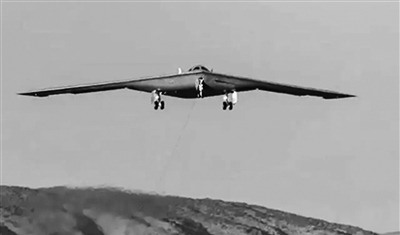Tag Archive for: faces
Ukraine faces second day of huge phone and internet outage after suspected Russian cyberattack
/in Computer Security
Ukraine on Wednesday entered the second day of limited communications after its largest mobile phone and internet provider was hit by a huge cyberattack, Ukrainian officials and the internet provider said Wednesday.
The company, Kyivstar, shut down all mobile and internet service Tuesday after experiencing what its CEO said was a Russian cyberattack.
The Kyivstar hack is one of the biggest cyberattacks on the civilian telecommunications industry in history, and one of the most influential of the Russia-Ukraine war. Kyivstar’s website is still inaccessible, but an archived version of it from November said it has more than 25 million customers nationwide, more than half the country’s population.
Kyivstar announced Wednesday it had begun to restore service, but Kentik, a company that tracks global internet connectivity, said Kyivstar was operating at a fraction of its normal traffic levels.
In addition to cutting off communications for millions of Ukrainians, the Kyivstar attack resulted in other critical services shutting down.
The head of Kyiv’s Regional Military Administration, Ruslan Kravchenko, said on Telegram that the outage disrupted air alert systems in multiple cities, forcing authorities to use backup alarms. Russia launched a missile attack Wednesday morning, Kyiv’s mayor said on his Telegram channel, resulting in 53 people being injured and 20 being hospitalized.
Ukraine’s largest bank, PrivatBank, announced that a lack of functioning internet connection had resulted in some ATMs and point-of-sale terminals not working.
In the city of Liviv, which uses internet-connected smart streetlights, the Kyivstar outage meant that the lights had to be disconnected manually, the City Council said on its website.
Ukrainian authorities, including communications officials and representatives from the Security Service of Ukraine, indicated in emailed statements Wednesday that the culprit was a unit within Russian military intelligence, the GRU, that Western governments and cybersecurity researchers have said is responsible for previous destructive attacks on Ukrainian infrastructure. Russia’s Ministry of Foreign Affairs didn’t respond to a request for comment.
Both the Security…
Russian developer of Trickbot malware pleads guilty, faces 35-year sentence
/in Computer Security
A Russian national pleaded guilty in federal court in Cleveland on Thursday to charges related to his involvement in developing and deploying the malicious software known as Trickbot. He faces a maximum penalty of 35 years, the U.S. Department of Justice said.
According to court documents, Vladimir Dunaev, 40, was a member of a cybercriminal organization that deployed Trickbot to steal money and install ransomware on victims’ computers. The group’s victims — including hospitals, schools, and businesses in the U.S. — suffered tens of millions of dollars in losses.
Trickbot, which was taken down last year, is believed to have stolen more than $180 million worldwide. Dunaev was extradited from South Korea to the U.S. in 2021.
Dunaev was actively involved in Trickbot’s operation, the DOJ said. In particular, he created browser modifications and malicious tools to harvest credentials and mine data from infected computers. He also improved remote access for Trickbot actors and developed a code to evade detection by legitimate security software.
“Dunaev and his codefendants hid behind their keyboards, first to create Trickbot, then using it to infect millions of computers worldwide… invading privacy and causing untold disruption and financial damage,” DOJ statement said.
Ten victims in the Northern District of Ohio, including Avon schools and a North Canton real-estate company, were defrauded of more than $3.4 million via ransomware deployed by Trickbot while Dunaev was involved in the operation, prosecutors said.
In June, one of Dunaev’s co-conspirators, Alla Witte — a Trickbot malware developer and Latvian national — pleaded guilty and was sentenced to two years and eight months in prison.
In February and September, the U.S. and U.K. also issued financial sanctions on 18 other members of Trickbot, freezing their assets and imposing travel bans.
The individuals targeted by the sanctions “include key actors involved in management and procurement for the Trickbot group, which has ties to Russian intelligence services,” according to the U.S. Treasury.
Recorded Future
Intelligence Cloud.
No previous article
No new articles
International arms control system faces multiple challenges
/in Internet Security

First test flight of the US B-21 Raider.
Russia announced that it had completed all procedures for withdrawing from the Treaty on Conventional Armed Forces in Europe (CFE) on November 7, and NATO also declared an official halt in fulfilling relevant contractual commitments on the same day.
In recent years, due to declining strategic mutual trust, the US and Russia, two nuclear powers possessing more than 90% of the global nuclear weapons, frequently withdrew from the Treaty, posing grave threats to the sustainability of their mutual supervision and transparency mechanism in the nuclear arms control and further severely impacting the international nuclear arms control system. Meanwhile, with the old nuclear arms control mechanism already shattered and the new one not yet in place, the two sides are still accelerating the upgrading of nuclear forces. Not only that, the US works with its allies to actively expand or upgrade extended deterrence. For example, it carried out nuclear submarine cooperation with the UK and Australia, acquiesced in Japan’s stockpile of massive nuclear weapon materials and gradually relieved the restrictions on ROK’s missile development.
The proliferation and use of nuclear weapons, capable of extinguishing human civilization, have been consistently under the world’s scrutiny. And the increasingly prominent conventional arms control issues also pose serious challenges to global security and development. At present, frequent regional conflicts and violence have provided a hotbed for the illicit conventional weapon trades, of which the discovery and traceability of light and small conventional weapons are particularly challenging. The application of cluster munitions, white phosphorus bombs, depleted uranium bombs and other specific conventional weapons has not only exacerbated the intensity of conflicts in relevant countries and regions, but also triggered serious humanitarian crises. Moreover, some countries’ irresponsible export and management of common or special conventional weapons have also aggravated the contradictions and conflicts. What’s particularly worrisome…




